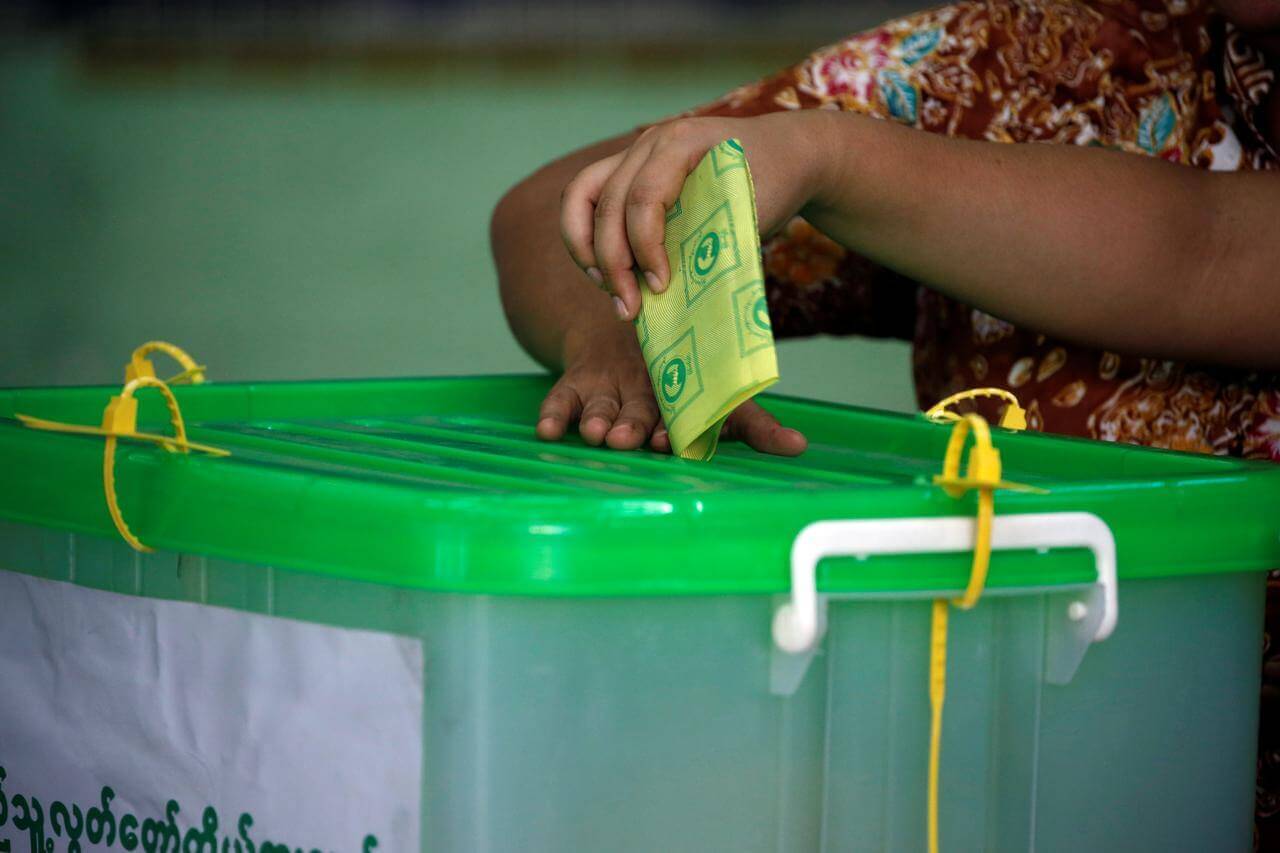In Rakhine State, the epicentre of the Rohingya crisis in Myanmar, the State Election commission failed to release the electoral roll in almost 46 villages, casting doubt on the legitimacy of the upcoming elections in November.
According to officials, continued armed conflict between the Arakan Army (AA) and the Tatmadaw (Myanmar’s military) forced villagers to flee their homes, and hence, the election commission could not release an electoral list in conflict-ridden villages. Polling officials maintain that 600,000 of Rakhine’s 1.6 million voters checked the accuracy of their information on the voter’s list.
There are growing concerns that refugees who fled the state will be unable to vote. Daw Aye Nu Sein, from the Arakan National Party (ANP), remarked, “In Some villages, there are no more villagers. How can we campaign in empty villages?” Echoing the logistical issues facing the refugees, U Myo Kyaw, the secretary of Arakan League for Democracy, said, “The people are facing such difficulties, so how can they check the voter’s list and vote, as there is no administrator.”
Human rights groups have criticised the military for continuing the conflict with ethnic armed groups (EAOs) amid the coronavirus pandemic. General-secretary of the Women’s League of Burma, Naw Hser Hser said, “While the country is dealing with the COVID-19 pandemic, the military is escalating its offensives against ethnic armed groups in Rakhine, Chin, Karen and northern Shan state.” This is in contravention to efforts by the EAOs who, including the AA in Rakhine, extended a unilateral ceasefire till April 30. The Myanmar government responded by inviting AA to join the country’s united fight against the virus. The AA, comprising mostly of Rakhine Buddhists, is designated as a terrorist organisation by Myanmar and is not part of the ongoing peace negotiations between the military and EAOs.
Several challenges confront Myanmar’s November elections, and the inclusion of ethnic minorities tops the list. Last week, the Rakhine’s Election Commission denied Abdul Rasheed, a member of the Democracy and Human Rights Party, and a Rohingya Muslim, from contesting in the upcoming elections. His candidacy was rejected because the Commission claimed he did not have citizenship, even though he provided all the necessary documents.
Myanmar’s Election Commission is also facing heavy criticism for banning a major election-monitoring group from observing the elections, raising concerns about the credibility of the upcoming polls. The ban on People’s Alliance for Credible Elections (PACE), an independent election monitoring group, called the Commission “irresponsible.” Contesting the allegations of banning PACE, The Union Election Commission spokesperson U Myint Naing said, “It is not true,” but offered no further explanation.
As concerns rise over the legitimacy of the elections, Myanmar recently began the fourth round of the Union Peace Conference-21st Century Panglong this week. The head of the ruling National League for Democracy (NLD) party, Daw Aung San Suu Kyi hinted that the Panglong peace could be “another path” to amending the military-drafted 2008 constitution. Responding to the State Counsellor remark, the chief of the military, Senior General Min Aung Hlaing, stressed, “If the peace process is based on personal desires, political wishes or the interest of particular group, it will delay both peace and other progress.” Defending the constitution, the military head added, “Under the constitution everyone has equal rights, including ethnic groups.”
The vice-chair of the Shan Nationalities League for Democracy, U Sai Nyunt Lwin, retorted that ethnic people do not have equal rights. Taking a dig at both the NLD and military, Lwin said, “Not only one person has been fighting during these 70 years of revolution. Generation after generation has taken up arms because there is no equality yet. We will keep trying.” Given the concerns regarding the impending elections and continuing obstacles in the peace process, democracy remains fragile in Myanmar.
Incomplete Voter Lists in Rakhine Raises Question of Credibility of Myanmar’s Election
Concerns are mounting regarding the legitimacy of the upcoming elections.
August 21, 2020

A voter cast her ballot for the by-election in Yangon, Myanmar, November 3, 2018. SOURCE: REUTERS/ANN WANG
